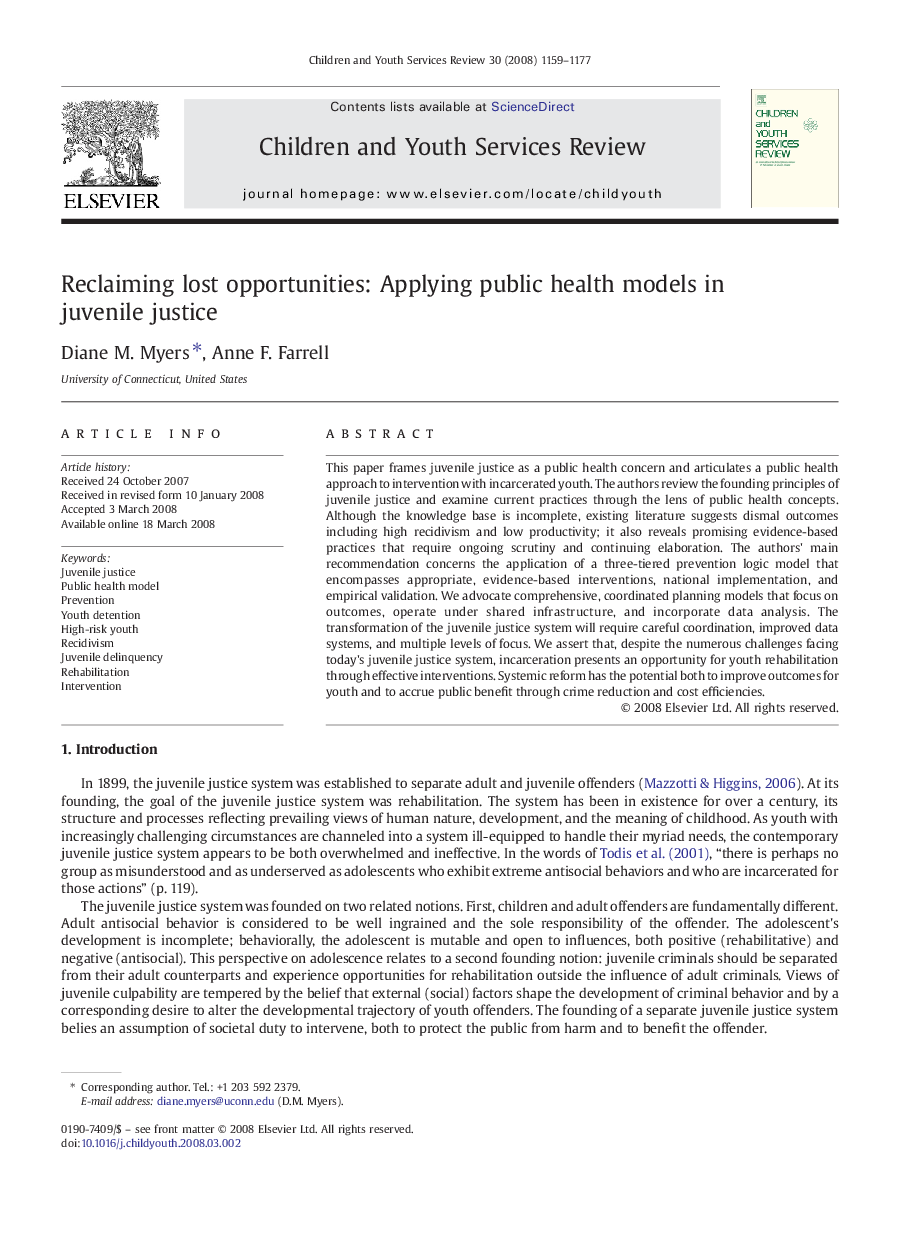| Article ID | Journal | Published Year | Pages | File Type |
|---|---|---|---|---|
| 347073 | Children and Youth Services Review | 2008 | 19 Pages |
This paper frames juvenile justice as a public health concern and articulates a public health approach to intervention with incarcerated youth. The authors review the founding principles of juvenile justice and examine current practices through the lens of public health concepts. Although the knowledge base is incomplete, existing literature suggests dismal outcomes including high recidivism and low productivity; it also reveals promising evidence-based practices that require ongoing scrutiny and continuing elaboration. The authors' main recommendation concerns the application of a three-tiered prevention logic model that encompasses appropriate, evidence-based interventions, national implementation, and empirical validation. We advocate comprehensive, coordinated planning models that focus on outcomes, operate under shared infrastructure, and incorporate data analysis. The transformation of the juvenile justice system will require careful coordination, improved data systems, and multiple levels of focus. We assert that, despite the numerous challenges facing today's juvenile justice system, incarceration presents an opportunity for youth rehabilitation through effective interventions. Systemic reform has the potential both to improve outcomes for youth and to accrue public benefit through crime reduction and cost efficiencies.
